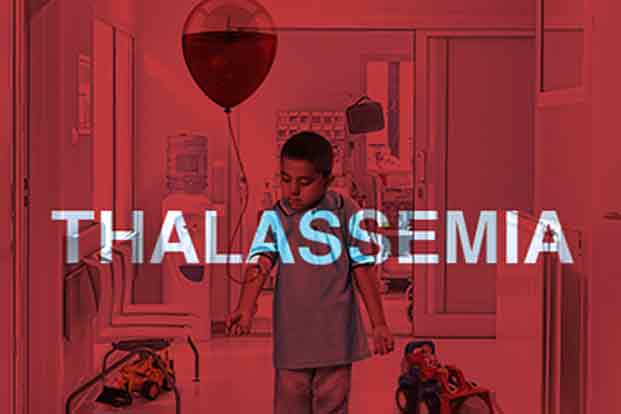What is Thalassemia?
Apr 19, 2022
Thalassemia is a genetic blood disorder. Patients with Thalassemia disease are not able to make enough hemoglobin, which causes severe anemia. When there is not enough hemoglobin in the red blood cells, all parts of the body will be deprived of oxygen and there by organs then become starved and are unable to function properly.

- Alpha Thalassemia disease
- Beta Thalassemia disease
The thalassemias are a diverse group of genetic blood diseases due by absence or decreased production of hemoglobin, resulting in anemia. Hemoglobin A, which is composed of two alpha and two beta globins, is the most prevalent, comprising about 95% of all hemoglobin. In the thalassemia patient, there is deletion of the genes that control globin production. This leads to a decreased production an abnormal hemoglobin ratio. This abnormal ratio leads to decreased production of hemoglobin and the expression of thalassemia.
- Beta thalassemiaresults in an excess of alpha globins, which leads to the formation of alpha globin tetramers that accumulate in the immature red blood cell. These aggregates are very insoluble and results in anemia.
- Alpha thalassemiaresults in an excess of beta globins, which leads to the formation of beta globin tetramers. These tetramers are more stable and soluble, but under special circumstances can lead to shortening the life span of the red cell.
Diagnosis of Thalassemia :
Few Primary Diagnosis Tests Include:
- A complete blood count (CBC)
- A reticulocyte count
- Iron
- Genetic testing
What are the Treatment Options for Thalassemia?
- Blood Transfusions– This is done to replenish hemoglobin and red blood cell levels. Patients with moderate to severe type of thalassemia may have transfusions in every 4 months, while those with more severe disease may have transfusions every 2-4 weeks.
- Iron Treatment–It involves removing excess iron from the bloodstream. Sometimes blood transfusions can cause iron overload. Iron overload affects heart and other organs.
- Bone Marrow Transplant-It also called a stem cell transplant. It is required for the most severe stage of Thalessemia.
- Surgery– Some patients with bone abnormalities may require surgery.
Thalassemia Complications:
The most common complications are:
- Iron overload
- Enlarged spleen (splenomegaly)
- Infection
- Bone deformities









